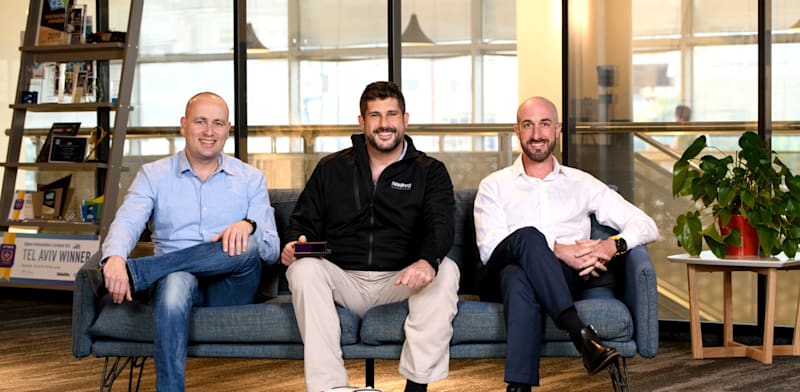![]()
Brooke Tornifoglio discusses imposter syndrome, advancing women’s healthcare and the rewards of moulding students into future experts.
In October of last year, at the annual Women in STEM event, assistant Professor in Trinity’s School of Engineering, Dr Brooke Tornifoglio was given the Female STEM Graduate of the Year Award, in recognition of her impactful research in the field of biomedical engineering.
Hailing from a family of healthcare professionals, the Massachusetts native, who first came to Ireland to study bioengineering, now biomedical engineering, at Trinity College Dublin, is an expert in magnetic resonance imaging, with a focus on its applications in cases of carotid artery disease diagnosis and vascular tissue engineering.
“From my undergraduate degree I have always been really interested in imaging,” she told SiliconRepublic.com. “I think it is human nature to want to see things. This type of bench top, ex vivo research is so exciting because you get the opportunity to really thoroughly investigate a research question to such a high standard.
“But then bringing that work to the clinic and seeing its potential in vivo, that is the really exciting and rewarding part.”
Regarding her recent win, Tornifoglio noted, it was an honour and she has been incredibly fortunate to have been surrounded and uplifted by so many supportive colleagues over the years. She gave particular mention to the women in her circle, namely her PhD supervisor, Prof Tríona Lally, whom she explained was instrumental in moulding her into the engineer and researcher she has become.
Reimagining possibilities
On the topic of women in the industry, from the patient perspective, Tornifoglio is vocal about the improvements that could be made in relation to how women’s health is researched, noting it is exciting but also sometimes ‘bleak’ to see how much is left to be investigated, explored and improved upon.
“With a background in cardiovascular biomechanics and imaging, it feels like there are constantly new studies coming out and devices being designed in the cardiovascular space. As I delve further in women’s health areas, it can be a bit shocking to see how far behind we are in this area.
“That’s not to say there isn’t phenomenal research happening in women’s health, but we have a long way to go. It’s exciting to think about how we can look towards fundamental research and then leverage that to innovate in the field. Being in my current role, I am fortunate to have the ability to explore these research gaps and try to improve women’s healthcare.”
Eye on the future
With an eye on the future she is also playing a part in moulding the next generation of biomedical engineers, whose accomplishments she views as a highlight within her own career.
“Last year I had three wonderful masters students. They were the first members of my research group during a tough year. Seeing one of them graduate last month and meeting her family, who are so proud of her achievements, it was so rewarding.”
For those with plans to follow in her footsteps, she would advise people not to shy away from trying new things and once you find your niche, really focus and strategise.
“Think about what you need to do to achieve it and how you can make that happen. I think I was lucky that during my post graduate years, I realised I wanted to stay in academia, so I worked really hard to make sure I was getting all the experiences needed to succeed and make that happen.”
Of her own challenges, despite obvious successes, like all of us, Tornifoglio has experienced moments of imposter syndrome, wherein she has felt as though, contrary to all evidence, her abilities did not match up to the job at hand.
“I am only a year and half into my current role and I frequently feel this,” she explained. “I recently bought a mug that says ‘Absolutely ….no idea what I am doing.’ I try to think of it as a positive, there is always more to learn and that is a good thing.”
But ultimately, she has found that by developing her people skills, talking to colleagues, networking and listening, she has put herself in the perfect position to absorb advice, feedback and criticism in a positive way, enabling her to achieve long term success.
“I have a fortune cookie fortune on my desk which says ‘just observe and you will learn a lot.’ I think about that a lot. Also, humility and a good sense of humour go a long way.”
Don’t miss out on the knowledge you need to succeed. Sign up for the Daily Brief, Silicon Republic’s digest of need-to-know sci-tech news.










Leave a Comment